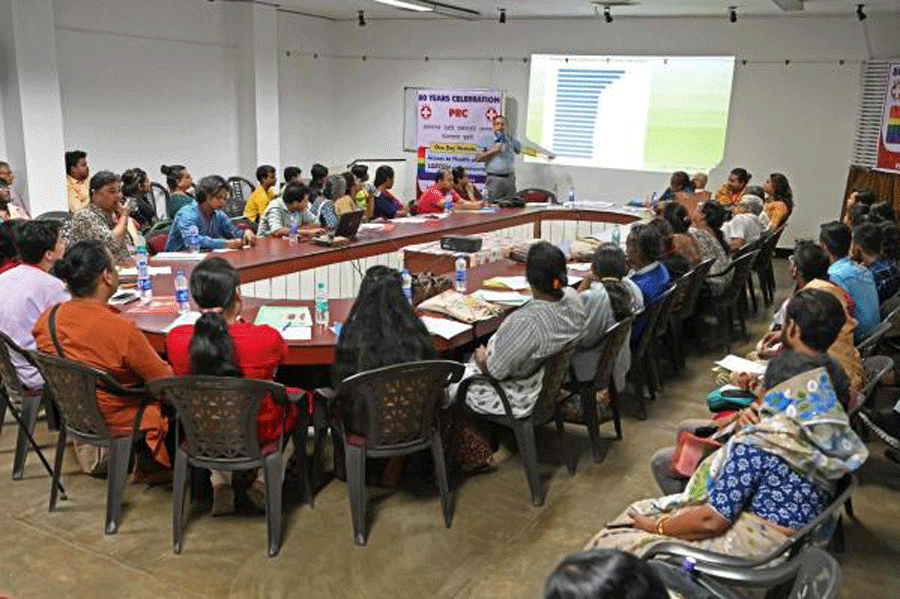A history that celebrated gender fluidity was subverted by the colonial masters, a mental-health activist said at a workshop for gender and sexual minorities on Saturday.
The workshop primarily focused on the community’s access, or the lack of it, to the healthcare system.
But the sessions delved into a whole gamut of issues surrounding the LGBTQIA+ community members. The acronym stands for lesbian, gay, bisexual, transgender, queer, questioning, intersex, asexual, and the + holds space for the expanding space of gender and sexual identities.
A session on access to mental health had Ushasie Chakraborty, actor and social activist, in conversation with Ratnaboli Ray, psychologist and mental health activist.
“In today’s India, there is a constant clamour on the need to fall back on Sanatan Hindu Dharma. If we go back to our religious folklore, it shows Radha and Krishna residing together in the same body. If this fluidity is a tradition of Sanatan India, then why is this a taboo now? Why are these people being marginalised,” asked Chakraborty.
Roy said marginalisation was introduced by the colonial masters.
“To imbibe Radha and Krishna in the same body and the societal acceptance of this androgynous assimilation was ingrained in Indian culture. Then why did the concept disappear suddenly? Because in the post-colonial period, we were handed some structures. The structures subverted that history in which diversity found acceptance and was celebrated. The structures found institutionalised forms — medico-legal regime, family regime and so on,” she said.
Healthcare access is doubly difficult for gender and sexual minorities because they are the last benchers of the society, activists and members of the transgender community said at the workshop, organised at an auditorium at the Academy of Fine Arts.
More than 20 organisations working for the rights of the community, who came from different parts of Bengal, attended the workshop, which looked to “mainstream their demands with the general movement of the Right to Health”.
“Health problems are more among the LGBTQIA+ community members because they are the last benchers of the society,” said doctor-activist Fuad Halim, the general secretary of the People’s Relief Committee, the organisers of the workshop. The PRC turned 80 this year.
